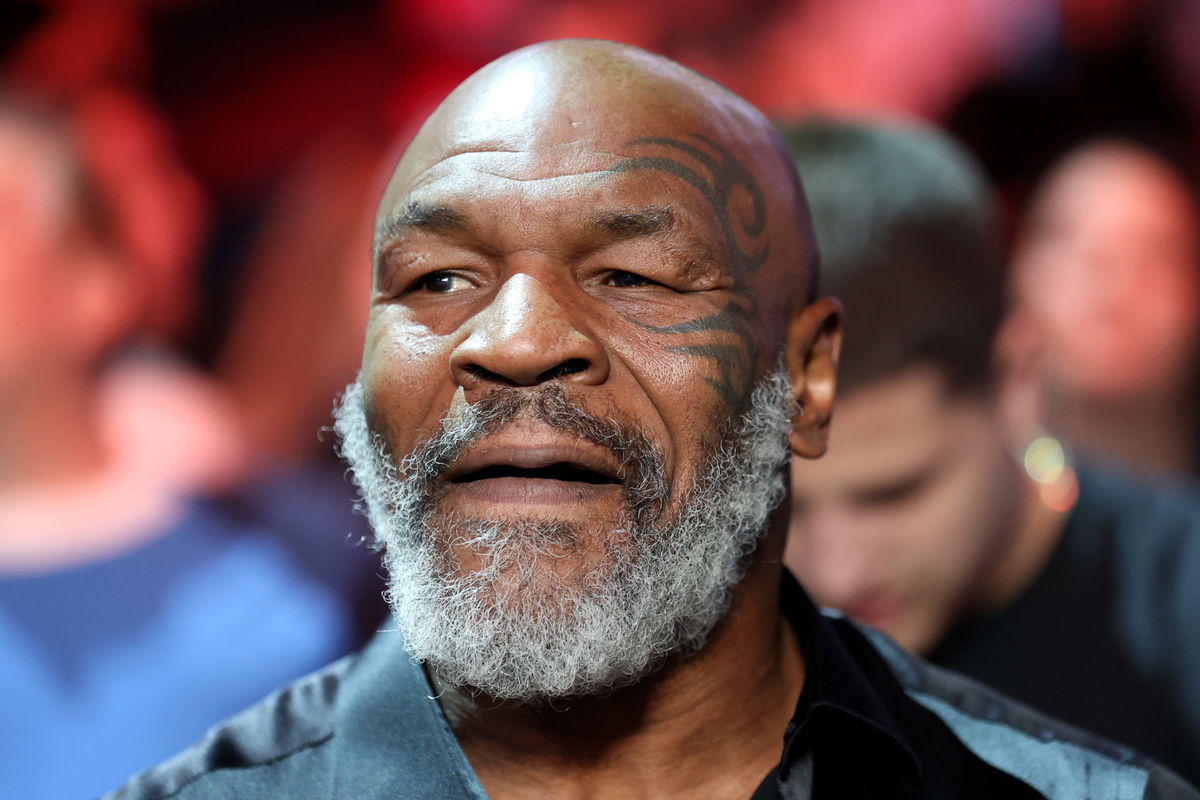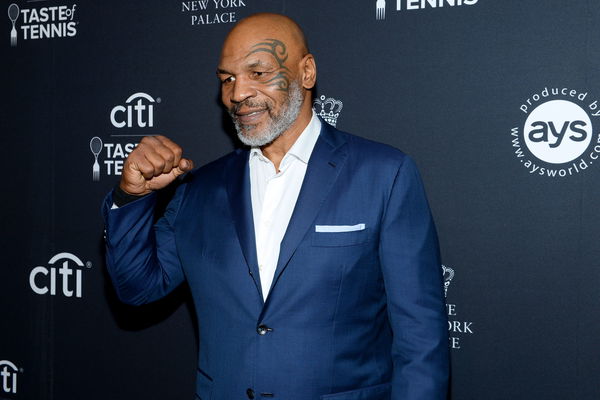
Getty
LAS VEGAS, NEVADA – MAY 07: Former boxer Mike Tyson attends the junior welterweight bout between Montana Love and Gabriel Gollaz Valenzuela at T-Mobile Arena on May 07, 2022 in Las Vegas, Nevada. (Photo by Al Bello/Getty Images)

Getty
LAS VEGAS, NEVADA – MAY 07: Former boxer Mike Tyson attends the junior welterweight bout between Montana Love and Gabriel Gollaz Valenzuela at T-Mobile Arena on May 07, 2022 in Las Vegas, Nevada. (Photo by Al Bello/Getty Images)
Boxing, as a combat sport, has long been associated with the risk of brain damage. The repeated blows to the head that fighters endure throughout their careers can have severe consequences, leading to long-term health issues. One of the most poignant examples is the late Muhammad Ali, who was diagnosed with Parkinson’s disease later in his life, widely believed to be a result of his boxing career.
Watch What’s Trending Now!
However, boxing legend Mike Tyson considers himself fortunate for never having experienced such brain damage, acknowledging the remarkable condition of his own brain in comparison to some of his peers.
ADVERTISEMENT
Mike Tyson reflects on his boxing career and how he avoided brain damage
In a recent episode of his podcast, Tyson candidly discussed the topic of brain damage in boxing. Moreover, he recognized the toll that boxing takes on the brain and pointed out the unfortunate sight of Ali’s brain, having witnessed it firsthand. The contrast between his own brain health and Ali’s condition reinforced Tyson’s appreciation for his fortunate circumstance.
“Fortunately, I never got into a predicament where I had brain damage because if you look at some boxers’ brains. I’ve seen Ali’s brain, I have such an awesome brain.” he said
Top Stories
“Rest in Peace”: Condolences Pour In as Legendary Coach Freddie Roach Mourns Personal Loss

“RIP”: Mike Tyson’s Son, Jake Paul, and Others Send Prayers as Anthony Joshua-Linked Car Crash Kills Two

“Stop”: Jarrell Miller Makes Emotional Plea After Family Car Crash as Anthony Joshua Story Hits Home

Anthony Joshua Joins Mother in Paying Final Respects to Late Friends After Hospital Release

Jake Paul’s Fiancée Jutta Leerdam Refuses to Let “Very Unfortunate” Moment Derail Her Olympics Dreams

ADVERTISEMENT
ADVERTISEMENT
Boxing is a physically demanding sport that requires immense skill, and resilience. However, it also exposes athletes to the risk of brain damage. In addition, repeated impacts on the head can lead to chronic traumatic encephalopathy (CTE), a degenerative brain condition characterized by memory loss, and behavioral changes. The condition can also manifest years or even decades after retirement leaving boxers with very few options for recovery. This is why combat athletes need to take into account steps to minimize brain damage for a better life.
How can brain damage be minimized in boxing?
The modifiable risk factors in boxing have been a subject of controversy, with concerns focused on traumatic brain injuries. Some potential strategies to reduce acute TBI include safer sparring practices and referee intervention in uncompetitive bouts. The use of gloves and headgear may provide some protection against linear blows but may be less effective against hooks.
ADVERTISEMENT

Getty
NEW YORK, NEW YORK – AUGUST 22: Mike Tyson attends the Citi Taste Of Tennis. August 22, 2019 in New York City. (Photo by Noam Galai/Getty Images for AYS Sports Marketing)
One suggested approach, proposed in a 2007 study, involves the implementation of a computerized warning system. This system would analyze punch volume data to identify disparities between two boxers, prompting officials to consider stopping the fight. However, this system was not able to catch up to mainstream boxing. The discussion surrounding modifiable risk factors in boxing continues.
ADVERTISEMENT
While the debate on whether to abolish the sport persists, the current popularity of boxing suggests that efforts should be directed toward enhancing safety practices instead. Strategies such as safer sparring, vigilant ringside evaluations, and the potential use of a computerized warning system offer promising avenues for mitigating concussions in amateur boxing.
What did you think about Mike Tyson reflecting on brain damage in boxing years after his retirement? Let us know in the comments.
Watch This Story: Watch: Mike Tyson Smokes Blunt Bigger Than His Head
ADVERTISEMENT
ADVERTISEMENT
ADVERTISEMENT
ADVERTISEMENT

